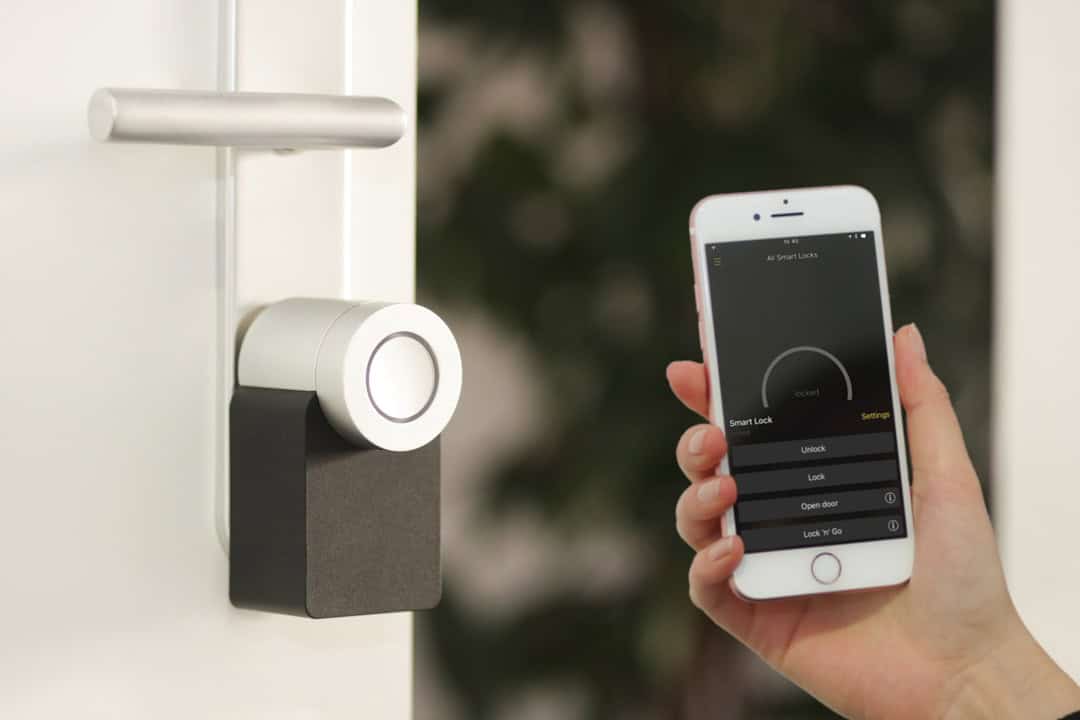Blockchain technology, often heralded as a revolutionary force across various sectors, is fundamentally a decentralized digital ledger that records transactions across multiple computers. This technology ensures that the recorded transactions cannot be altered retroactively without the alteration of all subsequent blocks and the consensus of the network. Originally developed as the underlying framework for cryptocurrencies like Bitcoin, blockchain has evolved into a versatile tool with applications extending far beyond digital currencies.
Its core attributes—transparency, security, and immutability—make it an attractive solution for industries grappling with inefficiencies and trust issues, particularly in real estate transactions. The real estate sector, characterized by its complexity and reliance on intermediaries, stands to benefit significantly from the adoption of blockchain technology. Traditional real estate transactions often involve a myriad of stakeholders, including buyers, sellers, agents, and financial institutions, each adding layers of complexity and potential for error.
The integration of blockchain could streamline these processes by providing a single source of truth that all parties can access in real-time. As the world becomes increasingly digital, the need for innovative solutions to enhance efficiency and reduce costs in real estate transactions has never been more pressing. This article delves into the current challenges faced in real estate transactions, explores how blockchain can address these issues, and examines the potential benefits and applications of this transformative technology.
Key Takeaways
- Blockchain technology is a decentralized and secure way of recording transactions, making it ideal for real estate transactions.
- Current challenges in real estate transactions include fraud, high transaction costs, and lengthy processes.
- Blockchain can address real estate transaction challenges by providing transparency, security, and efficiency in recording and verifying property ownership and transactions.
- Benefits of using blockchain in real estate transactions include reduced fraud, lower costs, faster transactions, and increased transparency.
- Potential applications of blockchain in real estate include smart contracts, property title management, and tokenization of real estate assets.
- Potential obstacles and risks of implementing blockchain in real estate transactions include regulatory hurdles, technological barriers, and resistance to change from traditional players.
- In conclusion, the future of real estate transactions with blockchain looks promising, but it will require overcoming obstacles and risks to fully realize its potential.
Current Challenges in Real Estate Transactions
Opacity in Property Ownership and Transaction History
One of the primary challenges is the lack of transparency in property ownership and transaction history. Buyers frequently face uncertainty regarding the legitimacy of property titles, leading to potential disputes and financial losses.
Inefficient Verification and Due Diligence Processes
The traditional methods of verifying ownership and conducting due diligence can be time-consuming and expensive, requiring extensive documentation and legal oversight. This opacity not only frustrates buyers and sellers but also creates an environment ripe for fraud, where unscrupulous actors can exploit gaps in the system.
The Complexity of Intermediaries and Regulatory Compliance
The reliance on intermediaries such as real estate agents, title companies, and banks adds another layer of complexity to transactions. Each intermediary typically requires their own set of documents and fees, which can inflate costs and prolong the transaction timeline. The coordination among various parties can lead to miscommunication and delays, further complicating what should be a straightforward process. Furthermore, regulatory compliance adds another hurdle; navigating local laws and regulations can be daunting for both buyers and sellers.
These challenges highlight the urgent need for a more efficient and secure method of conducting real estate transactions—one that can leverage technology to enhance trust and streamline processes.
How Blockchain can Address Real Estate Transaction Challenges

Blockchain technology offers a promising solution to many of the challenges currently plaguing real estate transactions. By creating a decentralized ledger that records all property transactions in an immutable format, blockchain can provide unparalleled transparency regarding property ownership and transaction history. Each transaction is time-stamped and linked to previous transactions, creating a comprehensive chain of ownership that is easily verifiable by all parties involved.
This transparency not only reduces the risk of fraud but also instills greater confidence among buyers and sellers, as they can independently verify the legitimacy of property titles without relying solely on intermediaries. In addition to enhancing transparency, blockchain can significantly streamline the transaction process itself. Smart contracts—self-executing contracts with the terms of the agreement directly written into code—can automate various aspects of real estate transactions.
For instance, once certain conditions are met (such as payment being made), a smart contract can automatically transfer ownership of the property without the need for manual intervention from agents or lawyers. This automation reduces the time required to close deals and minimizes human error, ultimately leading to faster transactions at lower costs. By addressing both transparency and efficiency, blockchain has the potential to transform how real estate transactions are conducted.
Benefits of Using Blockchain in Real Estate Transactions
The benefits of utilizing blockchain technology in real estate transactions extend far beyond mere efficiency gains; they encompass a fundamental shift in how trust is established within the industry. One of the most significant advantages is the reduction in transaction costs. By eliminating intermediaries and automating processes through smart contracts, buyers and sellers can save on fees associated with agents, title companies, and legal services.
This cost-effectiveness makes real estate transactions more accessible to a broader audience, potentially democratizing property ownership. Furthermore, blockchain enhances security in real estate transactions. The decentralized nature of blockchain means that data is stored across multiple nodes rather than in a single location, making it significantly more resistant to hacking or data breaches.
Each transaction is cryptographically secured, ensuring that only authorized parties can access sensitive information. This heightened level of security not only protects personal data but also safeguards against fraudulent activities that have historically plagued the industry. As trust becomes increasingly paramount in real estate dealings, blockchain’s ability to provide a secure environment for transactions could lead to greater participation from both buyers and sellers.
Potential Applications of Blockchain in Real Estate
The potential applications of blockchain technology in real estate are vast and varied, extending beyond simple transaction facilitation to encompass a range of innovative solutions that could reshape the industry landscape. One notable application is tokenization—the process of converting physical assets into digital tokens on a blockchain. This allows for fractional ownership of properties, enabling investors to purchase shares in high-value real estate assets without needing substantial capital upfront.
Tokenization not only opens up investment opportunities for a wider audience but also enhances liquidity in the real estate market by allowing assets to be traded more easily. Another promising application lies in property management and leasing processes. Blockchain can streamline tenant screening by securely storing tenant histories and rental payment records on a decentralized ledger.
This would allow landlords to quickly verify potential tenants’ backgrounds while maintaining privacy and security for sensitive information. Additionally, smart contracts could automate lease agreements, ensuring that rent payments are made on time and triggering penalties for late payments without requiring manual oversight. These applications illustrate how blockchain can not only simplify transactions but also enhance ongoing property management practices.
Potential Obstacles and Risks of Implementing Blockchain in Real Estate Transactions

Despite its numerous advantages, implementing blockchain technology in real estate transactions is not without its challenges and risks. One significant obstacle is the regulatory landscape surrounding blockchain and cryptocurrencies, which remains uncertain in many jurisdictions. Governments are still grappling with how to regulate this emerging technology effectively while balancing innovation with consumer protection.
The lack of clear regulations can create hesitancy among stakeholders who may be wary of adopting new systems that could potentially conflict with existing laws or lead to unforeseen legal complications. Moreover, there are concerns regarding interoperability between different blockchain platforms. As various companies develop their own blockchain solutions tailored for real estate transactions, ensuring that these systems can communicate with one another becomes crucial for widespread adoption.
If different platforms cannot share data seamlessly, it could lead to fragmentation within the industry, undermining the very benefits that blockchain aims to provide. Additionally, there is a need for education and training among industry professionals to ensure they understand how to leverage this technology effectively. Without proper knowledge and resources, stakeholders may struggle to transition from traditional methods to blockchain-based systems.
The Future of Real Estate Transactions with Blockchain
As we look toward the future of real estate transactions, it is clear that blockchain technology holds immense potential to revolutionize the industry. By addressing long-standing challenges such as transparency, efficiency, and security, blockchain could pave the way for a more streamlined and trustworthy transaction process. The benefits of reduced costs and enhanced accessibility could democratize property ownership while fostering greater investor confidence through secure transactions.
However, realizing this potential will require overcoming significant obstacles related to regulation, interoperability, and education within the industry. Stakeholders must collaborate to establish clear guidelines that promote innovation while safeguarding consumer interests. As awareness grows and technological advancements continue to unfold, it is likely that we will see an increasing number of real estate professionals embracing blockchain solutions.
Ultimately, as these systems become more integrated into everyday practices, we may witness a transformative shift in how real estate transactions are conducted—one that prioritizes efficiency, security, and trust in an increasingly digital world.
If you’re interested in how emerging technologies are transforming various industries, you might find the article “How Blockchain Can Revolutionize Real Estate Transactions” enlightening. For further reading on technology’s impact in different sectors, consider checking out this article from TechRepublic, which assists IT decision-makers in identifying and implementing new technologies. This resource could provide additional insights into how innovative tools and platforms are shaping business strategies and operations across fields, including real estate.
FAQs
What is blockchain technology?
Blockchain technology is a decentralized, distributed ledger that records transactions across many computers in such a way that the registered transactions cannot be altered retroactively.
How can blockchain revolutionize real estate transactions?
Blockchain can revolutionize real estate transactions by providing a secure, transparent, and efficient way to record and verify property ownership, transfer of funds, and contracts. It can also streamline the process by reducing the need for intermediaries and paperwork.
What are the benefits of using blockchain in real estate transactions?
Some benefits of using blockchain in real estate transactions include increased transparency, reduced fraud, lower costs, faster transactions, and improved security. It also provides a tamper-proof record of ownership and transaction history.
How does blockchain ensure security in real estate transactions?
Blockchain ensures security in real estate transactions by using cryptographic techniques to secure the data and transactions. Once a transaction is recorded on the blockchain, it cannot be altered or deleted, providing a high level of security and trust.
What are some challenges of implementing blockchain in real estate transactions?
Some challenges of implementing blockchain in real estate transactions include regulatory hurdles, interoperability with existing systems, scalability issues, and the need for industry-wide adoption. Additionally, there may be resistance to change from traditional real estate practices.

